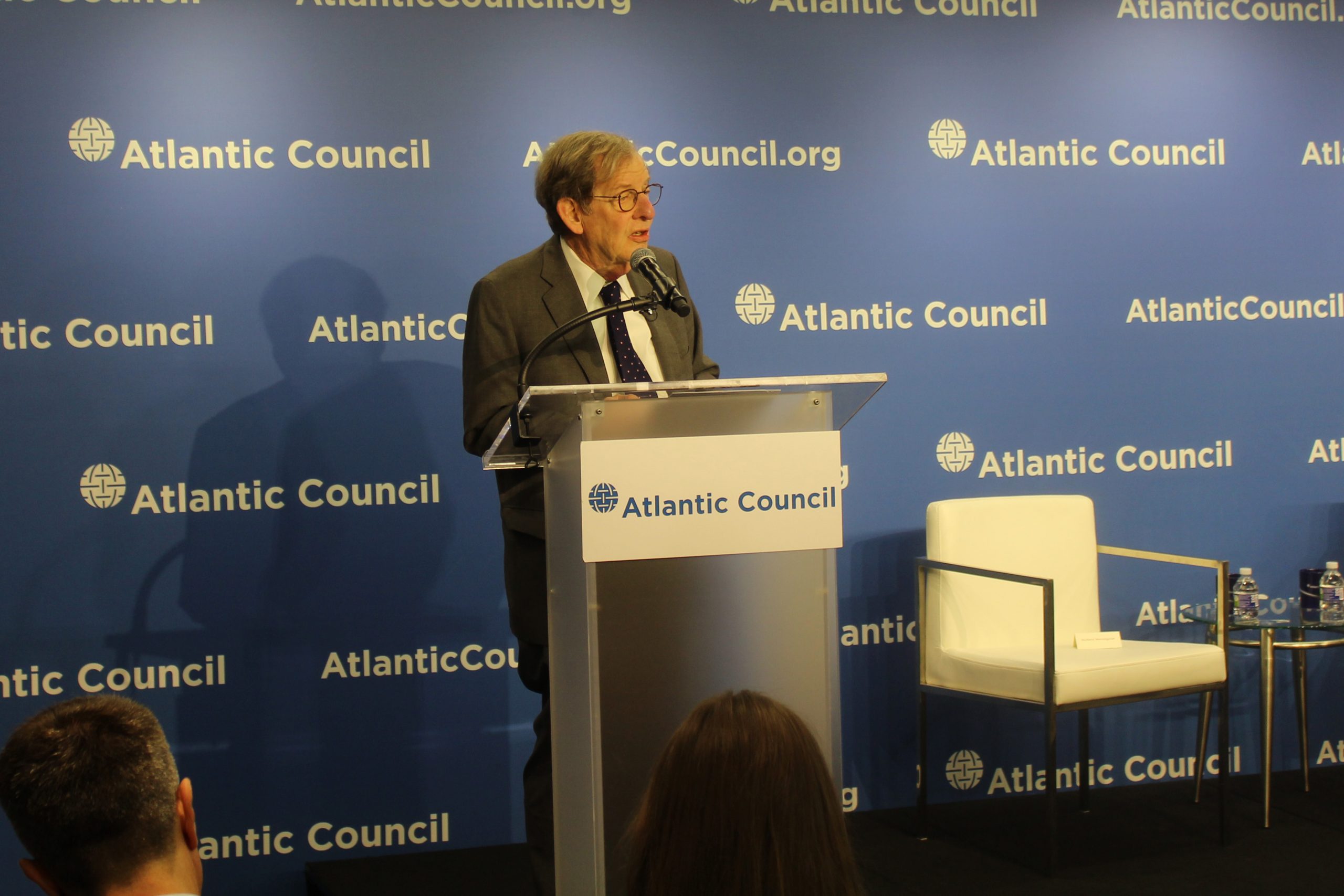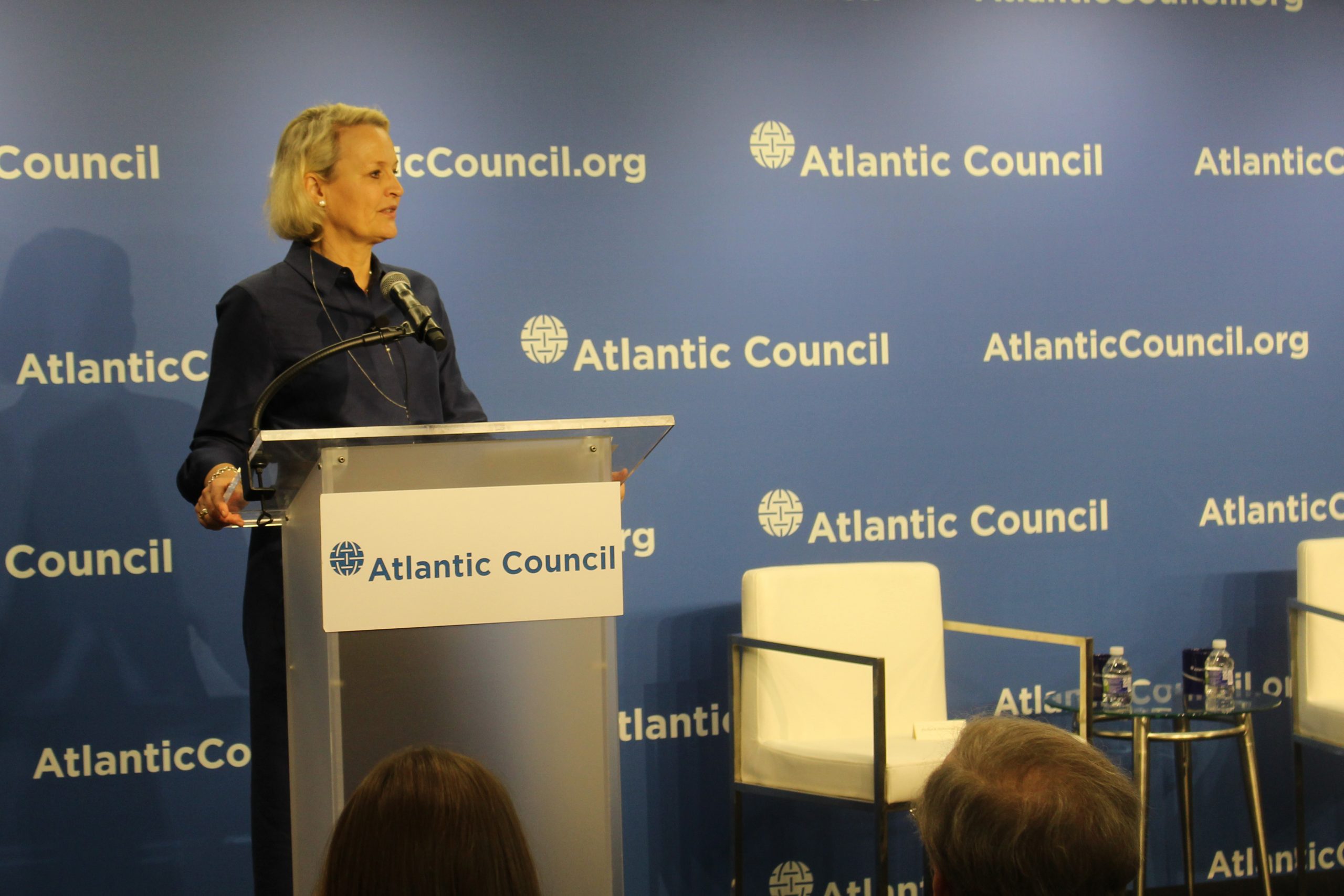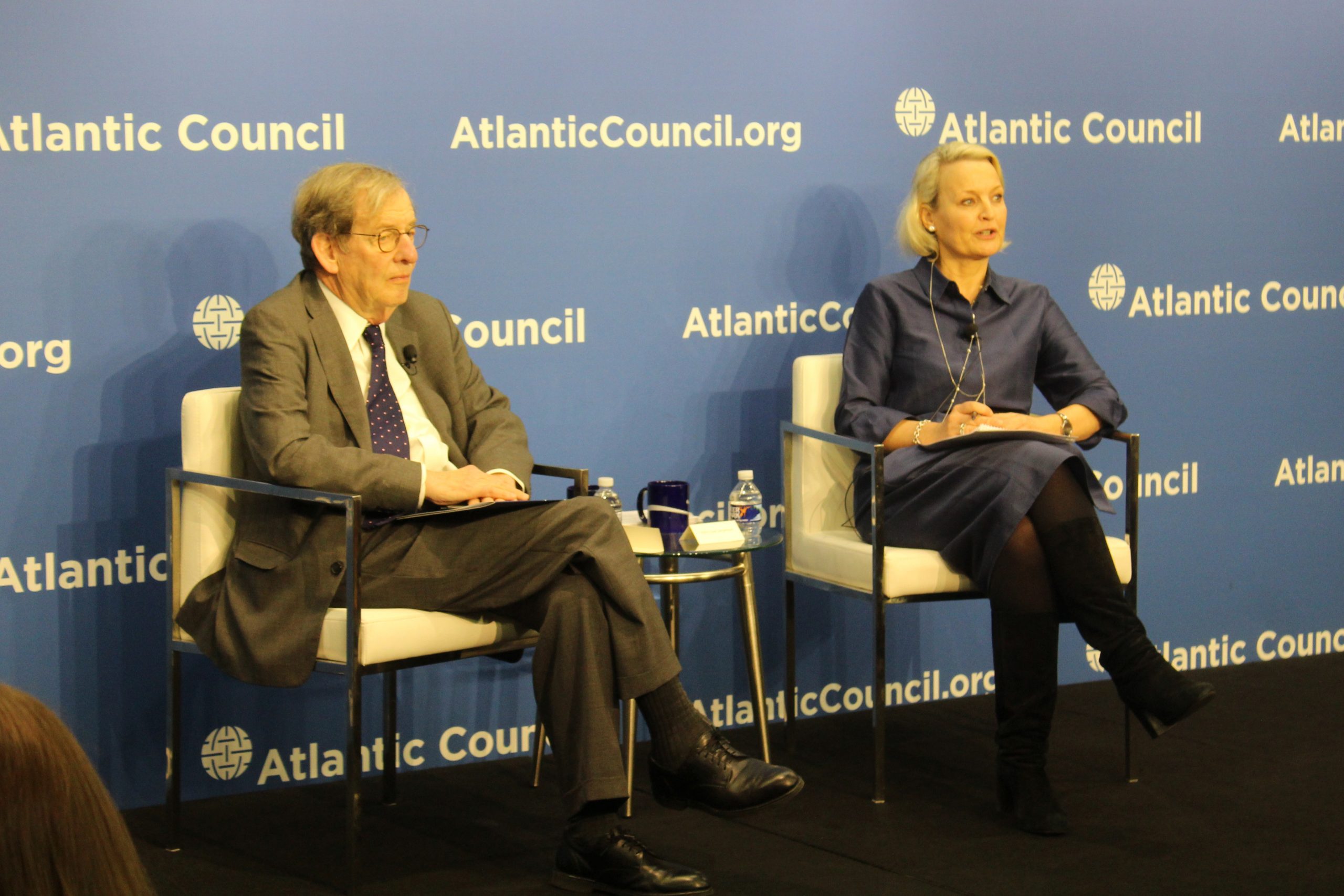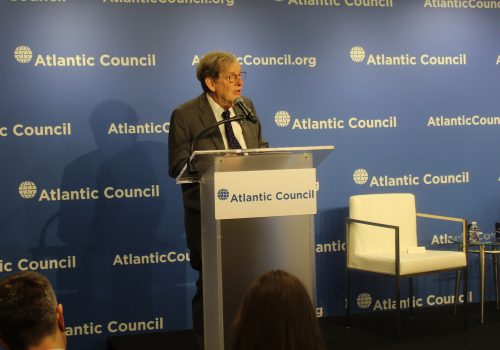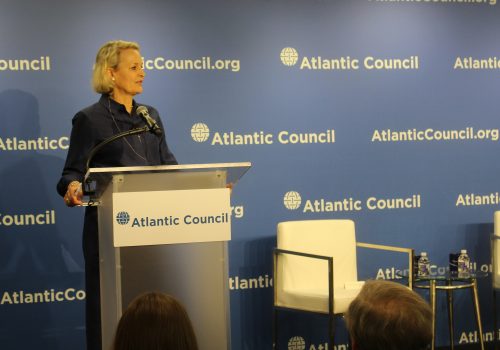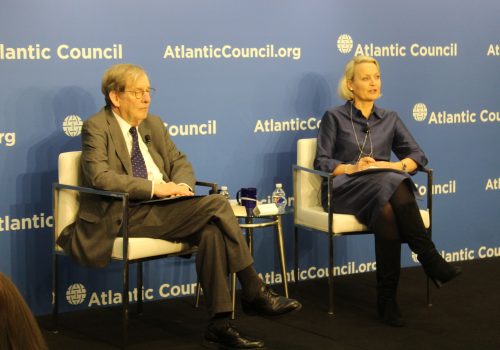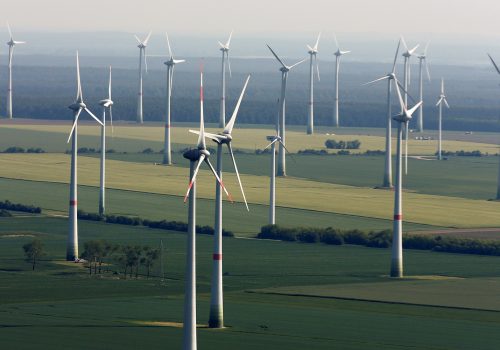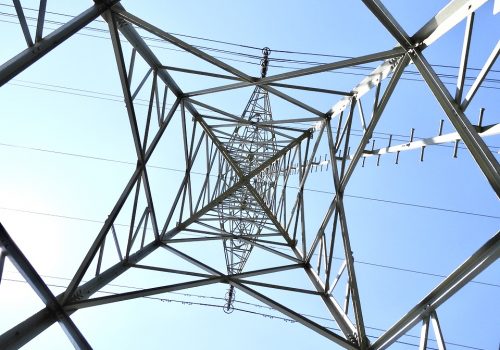The European Union’s (EU) efforts to achieve a carbon-neutral economy present a unique and timely opportunity to strengthen European energy security and to broaden transatlantic cooperation. The “European Green Deal” was proposed in 2019 and is Europe’s new growth strategy, which seeks to transform the EU into a climate-neutral economy by 2050. This objective builds on the commitments made by the EU under the Paris Agreement to reduce greenhouse gas emissions by at least 40 percent by 2030 compared to 1990. Director General Juul Jørgensen discusses the energy policy and energy security aspects of the European Green Deal in the context of the close transatlantic cooperation on energy.
Event recap
On Thursday, February 20, 2020, the Atlantic Council hosted H.E. Ditte Juul Jørgensen, director-general for energy at the European Commission, for a keynote address and fireside chat focused on the energy dimension of the European Green Deal and the future transatlantic energy agenda. Amb. Richard Morningstar, founding chairman of the Atlantic Council Global Energy Center, introduced the event and provided context on US-EU cooperation on energy. Morningstar also emphasized the need to better understand the relationship between climate change and energy security, as well as the opportunities and obstacles the European Green Deal may face moving forward.
Juul Jørgensen began her keynote remarks introducing the European Green Deal and the framework for reaching the EU 2050 carbon neutrality goal. Juul Jørgensen specified five themes that she feels best encompass the the EU climate strategy: markets, technology and innovation, sustainable finance, sector integration, and the decarbonization of the European energy system.
Juul Jørgensen identified markets as the strong foundation off of which the European Green Deal will build. She explained the role of National Energy and Climate Plans (NECP) in implementing the European Green Deal, which must be submitted by all Member States. Each member state’s NECP will specify its 2030 climate and energy targets, including the EU-wide targets for the reduction of greenhouse gas emissions and national goals for renewable energy, energy efficiency, internal markets, infrastructure enhancements, and innovation.
Juul Jørgensen then moved to address technology and innovation. She emphasized the EU’s need for greater sustainability and cost-effective climate solutions, identifying economy-wide digitization as an important means of achieving EU goals. Juul Jørgensen underscored the importance of developing greater energy efficiency and storage capacity, and acknowledged the EU’s need to advance its Carbon Capture and Storage (CCS) technologies.
With regard to sustainable finance, Juul Jørgensen identified the Green Deal Investment Plan and the Just Transition Fund as two key mechanisms that will allow the Commission to sustainably achieve its ambitious climate goals. These plans will not only fund infrastructure projects, but will also support the re-skilling of workers in coal-related sectors and in coal-dependent regions. She also announced that the European Green Deal will be funded by a significant portion of the Commission budget, as well as national country spending, with hopes that public spending will unlock and catalyze private investment.
Per sector integration, Juul Jørgensen discussed the importance of improving grid resilience across the EU, with actionable changes including improving energy infrastructure and diversifying energy sources. She identified energy diversification as a way to create a more competitive and flexible energy market and discussed the importance of electrifying transport, heating, cooling, and gas production. She specified the EU’s Risk Preparedness Regulation as a tool that will help Member States identify possible energy security risks and develop plans to address them.
Perhaps most pressing, Juul Jørgensen addressed the decarbonization of the European energy system—the key driver of the European Green Deal. To reach this goal, Member States will have to adopt more low-carbon energy through cost-effective and energy-secure measures. She also discussed the role gas will play in the European clean energy transition, confirming that it will indeed remain part of the mix. She spoke about the need for significant investment in renewables, but relayed that the extent to which renewables are adopted will be up to individual member states.
The event then shifted to a fireside chat between Juul Jørgensen and Morningstar, during which the two discussed these topics in greater detail. Juul Jørgensen affirmed that all stakeholders, including the private sector, must be involved in the energy transition if the EU is to meet its goals. Fossil fuel companies must also continue to invest in renewables and ramp up their support European decarbonization, she said. Juul Jørgensen attributes the European Investment Bank’s (EIB) new fossil fuel investment censure, to begin 2022, to a change in infrastructural needs. More specifically, she pointed out that there is currently a higher demand for renewable infrastructure than for gas pipelines.
Juul Jørgensen then touched upon the role of nuclear energy moving forward; based on the EU’s analysis thus far, the amount of nuclear in the EU mix will likely remain the same as it is today (about 12 percent of the EU total). Juul Jørgensen then spoke about the need for further research on novel civilian nuclear technologies such as next generation and small modular reactors.
The dialogue concluded with a discussion on the proposed EU carbon border tax. Juul Jørgensen explained that there must be a clear regulatory framework and long-term strategy in place before any such tax will be implemented. She stated that a carbon border adjustment tax will be an item in the EU’s tool box to prevent carbon leakage, and will align with World Trade Organization rules and other bilateral agreements. Juul Jørgensen announced that the EU will put forth a proposal for such a tax in 2021, after it first communicates with trading partners and energy companies.
The session then turned to the audience, with attendees raising important questions on various related topics. Questions centered upon US-EU cooperation on energy security and diversification, the role of trade in clean energy deployment, and the anticipated impact of the Three Seas Initiative on the EU energy transition. Questions also pertained to the EU’s pending climate law, the expected economic and market impact of green bonds, as well as Poland’s place within the European Green Deal. To round out the event, participants inquired about the continued role of Russia as a major exporter of gas to the EU and the the impact of Chinese investment in European energy infrastructure.
